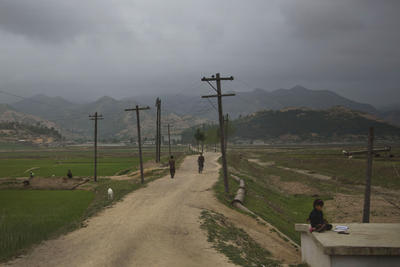Today, there is talk of resuming and large-scale humanitarian aid internationally. But the more consistent and successful aid provided by a small number of individuals from on a small scale provides important lessons. These individuals can offer an interesting perspective that challenges preconceived notions about how to engage with the isolated country.
Every week small traders, business people and aid workers travel the few hours from Yanji, the capital city of Yanbian Korean Autonomous Prefecture in China, to North Korea. Aid workers supply food to orphanages, and support hospitals and small farm projects. Others have built small food production facilities in North Korea’s Special Economic Zone, Rajin-Sonbong. These individuals usually receive appeals for aid from traders, but sometimes the appeals come directly from local officials. While some are self-supporting, many of these individuals receive financial help for their projects from overseas church groups.
Why does North Korea tolerate these individuals and the resources they bring?
The reason is simple: the North Korean regime has always insisted that the state will provide free health care and education. The leadership knows that its provision of social welfare is the ideological basis of popular support, and thus of social control. But with the virtual absence of resources, the ability of social welfare institutions to perform their functions has crumbled. The North Korean leadership’s insistence that the state is the primary provider of social welfare, coupled with bureaucratic barriers to seeking alternative means of support, leaves little room for privatisation and active appeals for outside resources. As a result, aid made available by outside actors is vital for the provision of social welfare.
Despite dilemmas and difficulties in providing aid to North Korea, individual aid workers have been successful because they have been patient enough to try to understand their local counterparts.
Mr Kim, an aid worker, told me, ‘the fundamental nature of all human beings is the same: the officials I work with are also trying to survive, protect themselves and support their families, under surveillance and lack of resources … If you try to practice theories and techniques learned at school, it does not work. The fundamental principle is to understand your counterpart as a human being and “localise” support’.
Goat farms have become a typical project in North Korea as part of an effort by North Korean officials to realise the supreme leader’s decree to ‘turn grass to meat’. Many organisations have brought in goats and set up goat farms. Initially, some farms achieved a degree of success in alleviating hunger and providing important nutrition for children. Donors expected the number of goats to double in a few years’ time. But the number of goats dropped as the North Korean owners struggled to feed them.
Mr Kim uses an alternative model: he donates a hundred goats in the spring and tells his North Korean partners to slaughter half for meat in autumn, when they have eaten up all the grass and before they become too thin in the winter. Their project goal is to ‘eat all the goats within five years’, not to double the number of goats.
To localise also means to be innovative. After many years of working in North Korea and observing the local system, Mr Kim thinks that a ‘social enterprise’ model may be worth experimenting with. In North Korea, enterprises are expected to make social contributions rather than profits. Foreign investors in Rajin-Sonbong complain that officials demand they contribute at least some of their profits to the country’s social welfare institutions.
But foreign investors could help North Koreans to experiment with social enterprise models by including a built-in social contribution function in business projects. A portion could be reinvested in production, while another portion could be sent to orphanages and hospitals. It is preferable for aid to create jobs and incomes, rather than simply providing materials. North Korea already has food, shoe, and pharmaceutical factories with foreign investment that are managed in this way.
Still, it is difficult to achieve transparency and accountability in aid spending. While donors expect transparency and accountability, this is only possible when local partners have a sense of ownership, and when trust between aid workers and their local counterparts has been established. When appropriate resources are provided and the positive outcomes of foreign partnerships become evident, aid workers report positive changes in their partner’s attitudes.
Aid workers to North Korea are often unable to see the full impact of their activities, but many share the idea that they are each doing a small part of the work necessary to bring about positive changes. With this mindset, they have continued their work despite many obstacles. Their experience has something to teach potential donors interested in aiding the North Korean people: be patient, build relationships, localise and innovate.
Eun Jeong Soh is a post-doctoral fellow at The Australia National University.

